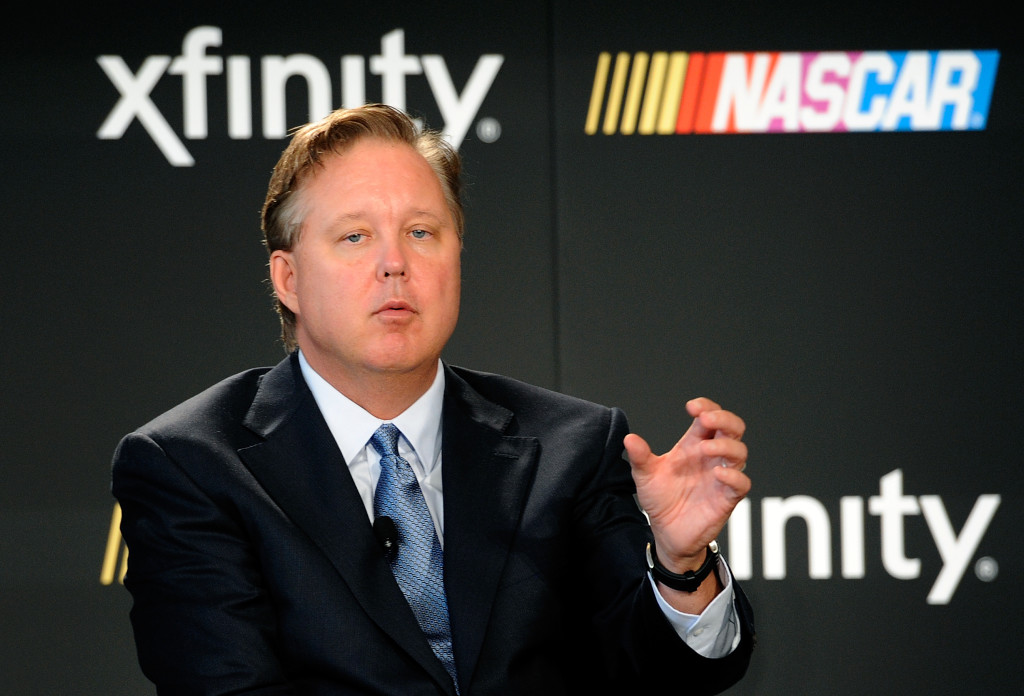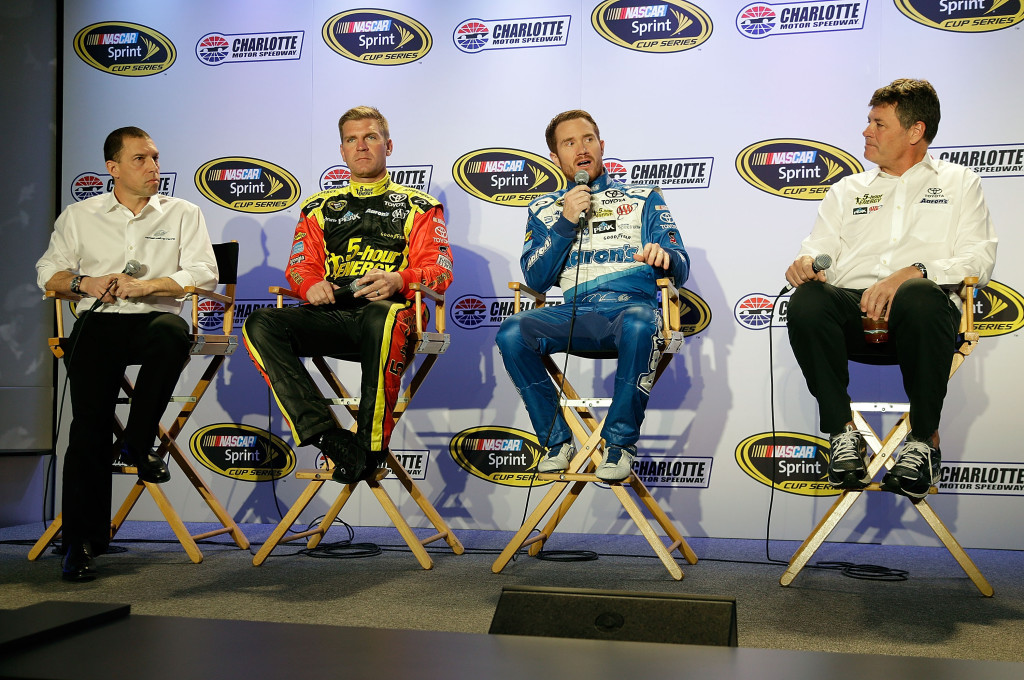

Charter system or franchising. That’s what team owners are attempting to get NASCAR officials to agree upon before the start of the 2016 system.
But let’s call it for what it is: a sharing of the wealth.
And it’s something that has been long overdue in the sport.
Think of all the team owners over the years who, after they either got too old, lost interest or simply ran out of money, decided to sell their teams.
Far too often, many of those same owners would sell all their equipment for pennies on the dollars, never coming closes to even breaking even for all the money they had spent over the years.
While it hasn’t happened recently, in the 1990s especially, we saw a number of what essentially were fire sales, where former owners were trying to eek out every possible penny they could from their race cars, tools, buildings/shops – and even their own houses.
They had no other choice. Even if they put 20, 30, even 40 years into the sport, they left with nothing because NASCAR had never established any type of revenue sharing or equity program that would reward owners for their time and service with at least some type of equity.
Finally, thanks to the foresight of former Michael Waltrip Racing majority owner Rob Kauffman (who now owns a minority share of Chip Ganassi Racing), NASCAR team owners finally agreed to unite as one and force NASCAR to give them a slice of the financial pie.
After all, when you’re pulling in something like $8 billion dollars over a 10-year period from just TV revenue alone, it’s doubtful the sanctioning body would even come close to accumulating maybe even $80 million in bills during that same time frame.
So, splitting revenue with team owners makes sense. Operating a top-flight Sprint Cup team costs $20 million on the low end and as much as $30 million on the high end. And that’s provided an owner gets that kind of money from outside sponsors that want to attach their name, brand and products to a specific team and driver.

That’s why a driver like Dale Earnhardt Jr. has been such a cash cow for Hendrick Motorsports. Even without winning one championship yet, Junior’s name easily brings in bundles of money.
In fact, just this past Friday, Mountain Dew announced it would return to sponsor Junior for three races in 2016, while for the first time adding two races to Chase Elliott’s sponsorship package and one race to Kasey Kahne’s.
While Kahne and Elliott are still looking to fill out the rest of their 38-race schedule (including races such as the Sprint All-Star race and the Can-Am Duel 150s preseason event at Daytona) and accompanying sponsorship, Earnhardt wrapped up his search for funding with the renewed Mountain Dew deal.
In other words, all 38 races on his dance card in 2016 are paid for in full. Any additional sponsorship that still comes his way will merely be gravy.
But NASCAR has been hit hard over the last 10 years due to the economic downturn that began in 2007 and which appears to be rearing its ugly head again as of late with economic volatility in China, as well as the significant drop in oil in the U.S. and around the world.
Couple the amount of money NASCAR is getting from TV, plus official sponsorships and partnerships, plus merchandise sales at-track and online, there’s a lot of money that should be available for owners to split.
Sure, it may cut out some of the smallest and least-funded teams. There have already been reports that NASCAR is mulling cutting race-day fields in the Sprint Cup Series from the long-held maximum of 43 cars, to just 40 cars going forward once the franchise/charter system is agreed upon.
That would likely mean the end of start-and-park teams. But in a sport that’s based upon speed, quickness and competition, teams that come only for a quick earnings check and run just a handful of laps before dropping out of a race after mysteriously having some type of parts failure, well, there’s just no more room for them anymore.
It’s not personal, it’s just business.
Good, prudent business I might add. Sure, fans would like to still see the little guys out there, but this is a different day and age in professional sports. Only the strongest survive. That would be like the NFL forcing the Rams to remain in St. Louis, when a more lucrative deal awaits their return to Los Angeles later this year.
That NASCAR has come this far in negotiations with Kauffman’s Race Team Alliance shows how serious the sanctioning body knows the team owners truly are. And without team owners and their cars, NASCAR has nothing.
Almost every other professional sports series has some sort of revenue sharing, if not outright control over the league officials. It’s time for that to occur in NASCAR. It’s long overdue.
If this were the 1960s with NASCAR founder Bill France Sr., or the 1980s or 1990s with Bill France Jr., it’s likely something similar to the RTA would never have gotten off the ground. Too bad, because a lot of good men that used to own good teams wound up leaving the sport with very little in may cases.
Kudos to Kauffman and particularly NASCAR Chairman/CEO Brian France for seeing that the wrongness of the past doesn’t work any longer. Sure, NASCAR is Brian’s ball, and he could go home with it if he wanted to.
But this is a new day and a new era in the sport, where cooperation, partnerships and stakeholders – and keeping everyone happy – is more important than what used to be NASCAR’s old unofficial motto of “it’s our way or the highway” agenda.
One other thing I wanted to point out before I close this missive: Let’s face it, the owners of most of the top teams in Sprint Cup are in their 60s or 70s. They’re not going to live forever, but their organizations have succession plans that will keep them operating and running long after the organizational founder and patriarch is long gone.
So why not share the revenue while you can, because no matter how wealthy or powerful you are, whether you’re Brian France or Rick Hendrick or Joe Gibbs or Roger Penske, there is one undeniable fact of life that each of them will ultimately be faced with:
You can’t take it with you.
Follow me on Twitter @JerryBonkowski


Leave a Reply